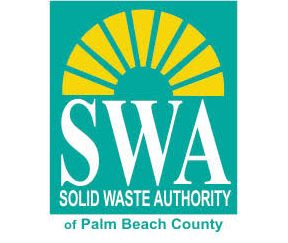Lithium batteries, powering a host of electronic gadgets and holiday gifts, are drawing scrutiny as suspected causes of fatal fires in places including New York City, as well as ignitions in Palm Beach County’s waste and recycling system, a Wellington panel learned recently.
As authorities grapple with the issue, many people do not realize such batteries should not be tossed into regular trash or recycling, an official with the county’s Solid Waste Authority told Wellington’s Public Safety Committee on Tuesday, Dec. 19.
“There is currently no coordinated, nationwide response to the problem,” said Jessica Winter, the SWA’s recycling, education and marketing manager.
Various kinds of lithium batteries help run everything from vehicles and scooters to game controllers, medical devices, smoke detectors, vaping equipment, drones and more. They provide benefits such as long battery life, but they also pose a risk of fire and require careful attention to their use and disposal.
Such batteries are sometimes marked with a symbolic “X” through a trash can indicating that they are not supposed to be disposed of like most other waste, but consumer awareness has not always kept pace with the technology, Winter said.
Consumers using products with such batteries should watch for signs like high heat or swelling of the product frame, added Elyse Brown, community education supervisor for Palm Beach County Fire-Rescue. If that happens, suspend use and charging, keep the device away from flammable materials and check with the retailer or manufacturer, she advised.
It can be difficult to pinpoint how many fires are related to lithium batteries because it is not a distinct category in many traditional reporting systems, Brown said. Efforts are underway to review that.
Typical consumers might not automatically think to sort through each purchase or gift and figure out what kind of battery is in there, Winter said, but wider recognition of the potential hazards could help.
Once in the waste system, the batteries can become overheated when their housings become damaged, exposed to water or banged around in settings like a sanitation truck, Winter said. That can lead to a dangerous situation called “thermal runaway” that risks turning into an explosive fire.
In one instance, someone threw about 50 vape pens containing lithium batteries in a county recycling bin, Winter said.
A fire ensued at a county recycling facility, in which the batteries were a suspected cause, she said. It was quickly contained, but the stakes have been higher in other situations.
In November, New York City fire officials blamed a scooter’s lithium battery for a fire that killed three people, published reports show. Officials said that brought the total killed in such fires to 17.
Among the issues investigated over time has been whether some manufacturers or distributors used fake safety-certification stickers crafted to make it look like they came from groups like UL, formerly Underwriters Laboratories.
In January 2023, Seminole County officials in Florida said an improperly disposed lithium battery was a “plausible” cause of a fire that caused about half a million dollars in damage to waste-hauling equipment, reports show.
Industry groups have said they are working with regulatory agencies to enhance standards for proper use and disposal.
In November, the Washington, D.C.-based Rechargeable Battery Association said it plans to schedule formal meetings with the U.S. Environmental Protection Agency “to explore alternative management practices for certain waste lithium-ion batteries that could be considered for future universal waste rulemakings.”
So, what are consumers supposed to do?
The proper way to dispose of the batteries is to tape the terminals, preferably with a clear packing tape, and then get it to an appropriate facility, Winter said.
That can be one of seven Home Chemical and Recycling Centers operated by the Solid Waste Authority of Palm Beach County — such as the one near the South Florida Fairgrounds at 9743 Weisman Way — or some big-box retailers that agree to take certain products for disposal, Winter said.
Residents can visit www.swa.org/lib for more information.
“Would it be practical, and I’m just throwing this out there, for designated drop-off containers, for people to safely drive up and dispose of them?” Committee Member John Archambo asked.
“We’re just in the public education phase of this, the awareness phase,” Winter said. “The next topic we’re probably going to be digging into is more on that collection side.”








